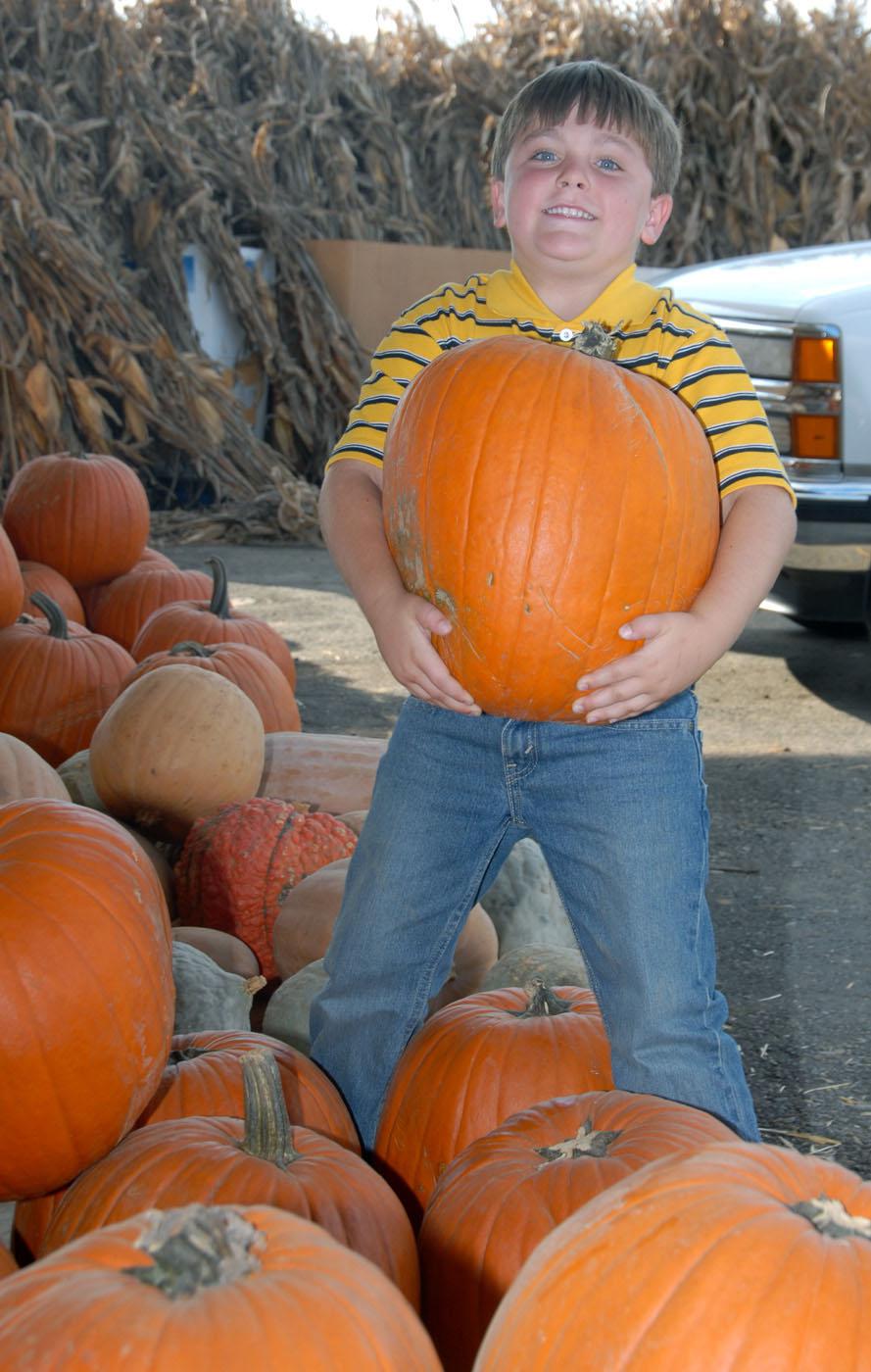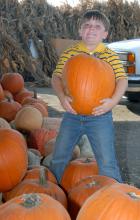Information Possibly Outdated
The information presented on this page was originally released on October 19, 2007. It may not be outdated, but please search our site for more current information. If you plan to quote or reference this information in a publication, please check with the Extension specialist or author before proceeding.
Weather reduces pumpkins yields
MISSISSIPPI STATE -- Mississippi's hot, dry summer reduced pumpkin yields to a ghost of what most growers hoped to see.
David Nagel, horticulture specialist with Mississippi State University's Extension Service, said about half of the state's growers produced an average crop and the other half had no crop at all.
“Growers who planted early had a good crop, but they also matured early for an August harvest. That meant growers had to have cool, dry places to store the pumpkins,” Nagel said. “Fields that were planted closer to the normal date around July 1 came up well, but then there was no more rain after early July. We had minimal insect and disease pressure, so the quality is good, but they are just smaller pumpkins.”
Nagel said the drought in the upper midwestern United States caused a pumpkin shortage that is drawing on the crop produced in Mississippi's neighboring regions. With fewer pumpkins coming to the state from areas such as Texas and Kentucky, local growers should enjoy a better market in 2007.
Wayne County growers Joe Dyess and Jim Britton ventured into the pumpkin business for the first time this year, planting a few acres along with some late-planted watermelons that matured in time for Labor Day sales.
“Our pumpkins were successful in spite of the dry weather. We planted a little earlier than we should have, but we've sold out,” Dyess said. “You can tell there was a shortage. People were calling from the Coast and all over Mississippi looking for pumpkins.”
Dyess said they sold pumpkins to churches, schools and other organizations for special programs. They sold some to another grower who needed more pumpkins to fill his orders. They also sold fall displays with pumpkins, hay bales and cornstalks.
Mel Ellis of Mayhew Tomato Farm in Lowndes County is harvesting 4 acres of irrigated pumpkins for the second year. He said yields were about half of what they were last year.
“It was way too hot, especially in August, for pollination,” Ellis said. “During a drought, it's hard to pump enough water to meet their needs.”
As a newcomer to the pumpkin business, Ellis said one of his biggest challenges is marketing his crop.
“The peak weekends are the last one in September and the first one in October,” he said. “In this area, both State and Ole Miss had home football games on Oct. 6, and that means 100,000 people had something else to do other than shop for pumpkins.”



